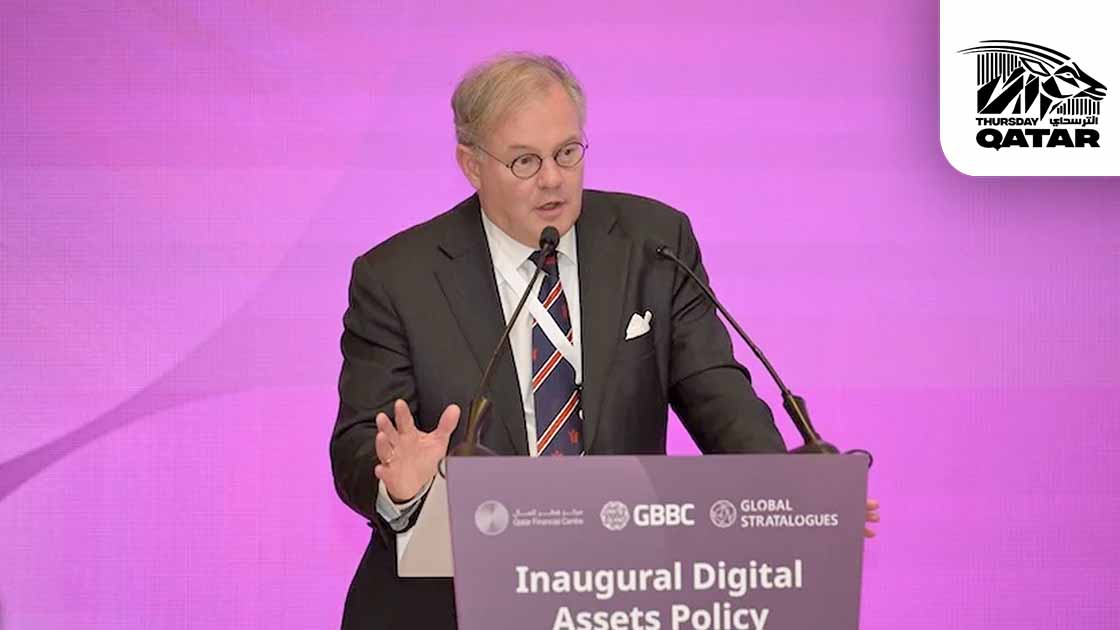DOHA (Thursday Qatar) — Qatar has entered the global tokenisation race with a new policy report aimed at shaping the future of digital assets, as the Gulf state pushes to become a regulatory and infrastructure leader in what could become a $16 trillion market by 2030.
The report, From Regulation to Realisation: Shaping the Future of Digital Assets, was published by the Qatar Financial Centre (QFC) in collaboration with Global Stratalogues and the Global Blockchain Business Council. It outlines the five critical building blocks for unlocking the potential of tokenised real-world assets: cross-border regulatory alignment, core infrastructure investment, financial inclusion, AI-blockchain governance, and public-private tokenisation labs.
The findings draw on insights from the inaugural Digital Assets Policy Roundtable, held earlier this year alongside the Qatar Economic Forum. The event brought together financial regulators, blockchain pioneers, and policymakers to forge a unified vision for scalable tokenisation.
“Tokenisation must serve a purpose. It should democratise access and create real-world value,” said Henk J. Hoogendoorn, QFC’s chief financial sector officer. “Qatar is committed to making this a success.”
The momentum comes as global estimates suggest tokenisation could account for 10 percent of GDP by 2030. According to Boston Consulting Group and ADDX, this equates to a staggering $16 trillion, encompassing everything from real estate and equities to art and infrastructure.
Yousuf Mohamed Al-Jaida, CEO of the QFC, emphasised that the key to realising this vision lies in a system that balances regulatory clarity with secure custody and usability. “We need a trusted environment that enables institutional adoption and sustainable growth,” he said.
Regulatory clarity emerged as a recurring theme. Maha Al-Saadi, head of regulatory affairs at QFC and moderator of the roundtable, stressed that clear frameworks are essential, not optional. “Our goal is to bridge global standards with local implementation,” she said.
The roundtable featured voices from Zodia Custody, GBBC, XDC Network, ADL, Taurus, and financial crime watchdogs, marking a rare moment of alignment between regulators and innovators in an industry often plagued by fragmentation.
Oscar Wendel, co-author of the report and founder of Global Stratalogues, described the paper as “a distillation of global intelligence” aimed at paving the way for interoperable digital asset markets worldwide.
Beyond Qatar, the Gulf region is quickly becoming a live testbed for tokenisation. In Dubai, the Virtual Assets Regulatory Authority (VARA) has enabled regulated tokenised real estate offerings, including a villa sold to 169 investors from 40 nationalities in under five minutes. DAMAC Group has also entered the space, signing a $1 billion deal with blockchain platform MANTRA to tokenise luxury properties.
Doha is hoping to lead this charge, focusing on infrastructure-first strategies rather than rushing into tokenisation without the necessary digital plumbing. The QFC believes this pragmatic approach will position Qatar not just as a participant, but as a global shaper of how tokenised assets are created, transferred and governed.
The report is now available online and is already being seen as a foundational reference in policy circles. As the regulatory fog begins to lift, Qatar is placing itself firmly at the centre of what could become the next great financial frontier.




